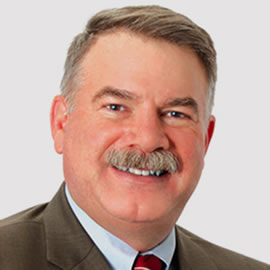
Editor-In-Chief, Chester “Trip” Buckenmaier III, MD, COL (ret.), MC, USA
“My mother used to say to me if you want to clean up the world, first clean up your room.”—S.E. Cupp, CNN interview aired Jan. 4, 2020, 1800 ET.
CNN reporter Sarah Elizabeth Cupp was interviewing Rabbi Joseph Potasnik concerning recent anti-Semitic attacks on members of the Jewish faith. My spouse, Pam, viewed the CNN interview and made me aware of Cupp’s quote used above from the broadcast. My wife and I have been discussing the ongoing challenges to the world’s environment due to the consequences of climate change, the horrifying ongoing bush fire disaster in Australia being the most current and poignant example. Unpleasant changes in our global environment from extremes in weather, animal species extinction or rising sea level seem to be routine on the nightly news.
We have even experienced the consequences of a changing climate in our backyard with the loss of three 100-year-old chestnut oak trees to bore beetles that have overwhelmed this species of tree due to the changing climate in Maryland. In this respect, the reality of global warming is now personal, and the loss of these trees have negatively impacted on both my property and my wallet—tree removal is around $2,000 a tree.
Pam and I often feel overwhelmed and impotent in the face of the worldwide challenge that global warming represents to the planet’s environment and the general health of the human species. As parents, we are particularly concerned that our children and grandchildren will not enjoy the same quality of life that our generation has enjoyed because of the generally poor response of world governments (particularly the United States) to this crisis. For our children’s sake, we desire the impact humans have on the world to change but feel powerless to make a difference on a problem of such vast scope and scale.
I have expressed my concerns regarding climate change and human health before in this column. The science behind the phenomena of global warming is extensive and compelling. I recommend “Highlights of the U.S. Global Change Research Program Climate Science Special Report”1 that was mandated by Congress for a summary of the empirical reality of global climate change. (I need only look to my backyard and the Chesapeake Bay beyond to see these changes). The report states that we are presently living in the warmest period in the history of modern civilization and that human activity is responsible for the greenhouse gases that are causing this global change.
There is no shortage of climate change deniers, usually motivated by the economic concerns of the petroleum industry, who would have us believe that everything is fine and we should keep burning fossil fuels for energy. Fossil fuels have made many in our society fabulously wealthy. History is replete with examples of similar lies perpetrated on society for the sake of making a buck, from cigarette smoking is safe, opioids are not addictive if you are in pain, or vaping is a safe alternative to cigarettes. I could certainly go on with other examples. What is different with global warming is the general threat to life on the planet that continued use of fossil fuel represents. The other health issues I just mentioned are significant, but the health consequences of global warming are devastatingly grander in scale.
I have always felt that, in our role as federal medicine providers, we must continually advocate for the health of our patients in all areas. Society looks to the medical community for health standards and expects our community to live the standards we promote. I feel global warming is the greatest threat to the health of the community we serve, and the scientific evidence to support that position is tremendous. While I can influence a patient’s health by recommending they quit smoking, do not abuse opioids, participate in routine exercise and the like, I feel powerless to help them in the face of global warming. I think this is why the first clean your own room comment struck home for me.
I cannot fix global warming, but I can work to be part of the solution at home and set an example. Pam and I try to reduce our own carbon footprint whenever possible. We recycle, heat the house with wood (a renewable resource), zeroscape our property and invest in trying to save the few chestnut oaks left on our property, as examples. The most significant change we have made has been the recent switch to all-electric vehicles. We made this change not for financial reasons, as overall we don’t expect to recover the investment made to purchase the electric vehicles. We made this change to make our own statement.
I realized I am blessed to have the economic ability to do this, which is not currently within everyone’s means. In short, I am trying to clean my own room, to set an example for my children and patients. Hopefully by making these economic choices, we will eventually influence those who are only motivated and moved by money to produce more environmentally sound products and services. Collectively, we have the power to influence corporations (read oil companies) to behave more environmentally responsibly by making more ecologically appropriate purchases.
Finally, we are all blessed with living in a democracy where we possess the vote to influence our leaders to make the right choices for our future. Global warming will be the most important issue affecting my vote in 2020 for the sake of my children and my patients.
https://science2017.globalchange.gov/downloads/CSSR_Executive_Summary.pdf. Accessed 8 Jan 2020.

Thanks for saying this. My vote will also be influenced by the candidates’ plans to address global climate change.